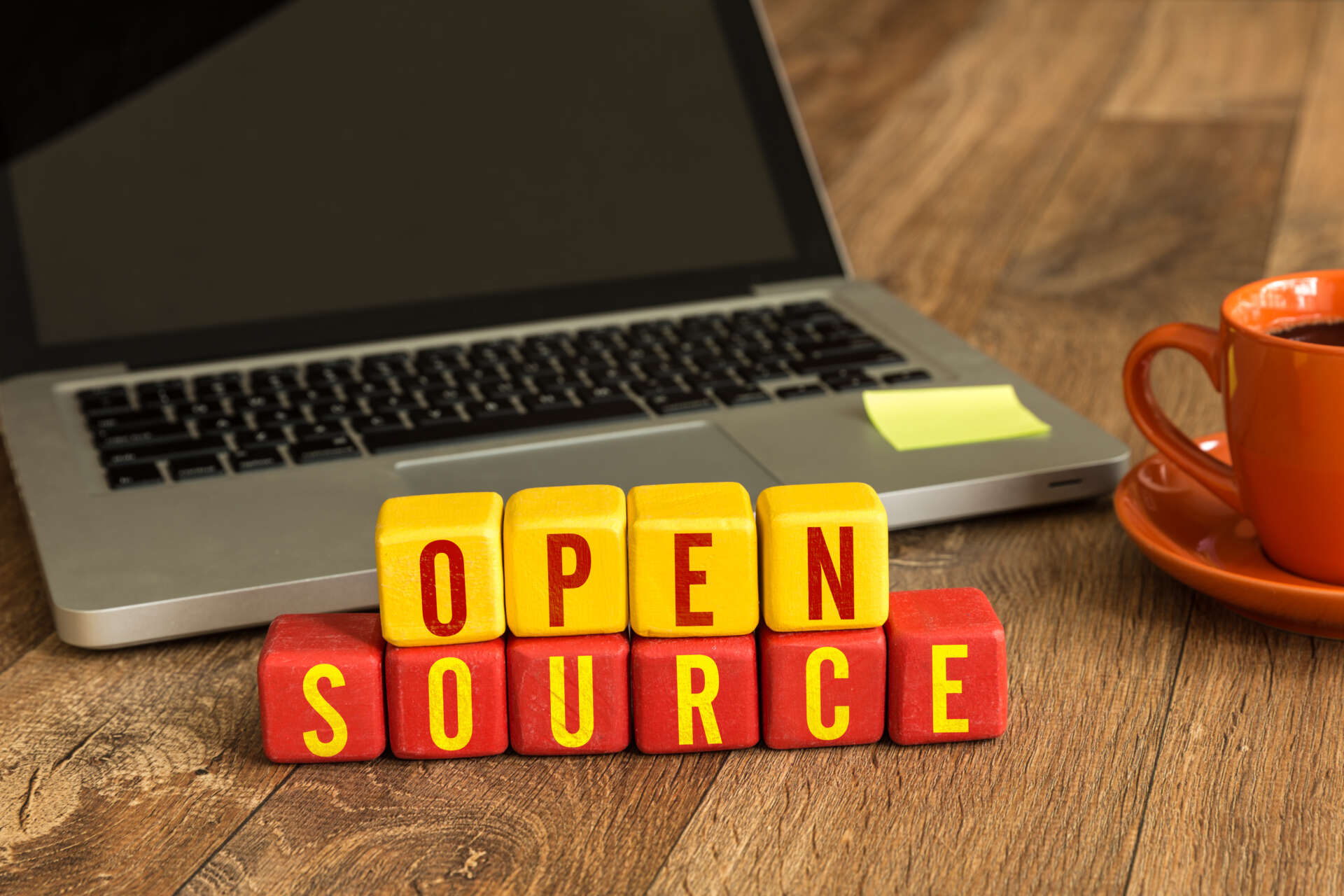The digital landscape is constantly evolving, driven by innovation, competition, and sometimes, unexpected conflicts. One such conflict currently capturing the attention of the web development world involves two significant players: WordPress, the ubiquitous content management system, and WP Engine, a prominent managed WordPress hosting provider. This dispute carries considerable weight, potentially impacting countless businesses and developers globally. Understanding the Strategic Implications WordPress WP Engine Dispute is crucial for anyone operating within or reliant upon the WordPress ecosystem, which powers a substantial portion of the internet. This situation highlights the complex dynamics inherent in the open-source model and the commercial services built upon it.
At its heart, the disagreement raises fundamental questions about contribution, fairness, and the rights associated with using freely available software. For businesses ranging from small blogs to large enterprises, the stability and predictability of their online presence are paramount. Disruptions, even those stemming from internal ecosystem disputes, can lead to tangible costs, lost productivity, and significant uncertainty. As this conflict unfolds, its lessons will undoubtedly resonate across the broader technology sector, particularly for platforms that rely on collaboration between open-source projects and commercial entities.
The ramifications extend beyond just the technical or legal aspects. They touch upon community governance, the sustainability of open-source development, and the trust that users place in the platforms and services they choose. Navigating these complexities requires a deep understanding of the underlying principles and the potential ripple effects throughout the digital infrastructure.
Unpacking the Core Conflict Between WordPress and WP Engine
To truly grasp the depth of the current situation, it’s essential to understand the relationship between WordPress and WP Engine. WordPress, in its most fundamental form, is open-source software. This means its source code is freely available for anyone to use, modify, and distribute under the terms of licenses like the GPL (General Public License).
The WordPress ecosystem is complex, comprising the non-profit WordPress Foundation, which oversees the core software project (WordPress.org), and Automattic, a for-profit company founded by WordPress co-creator Matt Mullenweg, which operates commercial services like WordPress.com and WooCommerce. WP Engine, on the other hand, is a large, for-profit company that specializes in providing managed hosting services specifically optimized for WordPress websites. Their entire business model is predicated on leveraging the open-source WordPress software.
WP Engine, like many other hosting providers, utilizes the free WordPress code to build its infrastructure and offer value-added services to customers, such as performance optimization, security features, and dedicated support. Their success is inextricably linked to the health and continued development of the WordPress core software. The core of the dispute centers on the perceived imbalance in this relationship – specifically, the level of contribution WP Engine makes back to the open-source project compared to the significant commercial success it derives from it.
This tension between commercial utilization and open-source contribution is not unique to WordPress but is amplified here due to WordPress’s immense market share. Powering an estimated 40% of the web, according to figures from WordPress.org, means any significant disruption has the potential for widespread impact. The services built on top of this open-source foundation, like hosting, themes, and plugins, constitute a massive global industry.
The current conflict emerged publicly when Matt Mullenweg, speaking on behalf of the WordPress project, accused WP Engine of being a cancer to WordPress due to an alleged lack of adequate contribution to the core project’s maintenance and development. This accusation was followed by concrete action: a ban on WP Engine from accessing certain key parts of the WordPress ecosystem, specifically related to official tools and resources on WordPress.org. This action is a significant escalation and represents an attempt by the core project leadership to enforce their expectations regarding community participation and contribution from commercial users.
WP Engine has publicly pushed back against these accusations, stating that they are proud of their contributions to the WordPress ecosystem. This includes contributing code, sponsoring events, and supporting contributors. However, the core project’s leadership clearly feels that WP Engine’s contributions have not been commensurate with the scale of their business and reliance on the platform. This disagreement over the nature and sufficiency of contribution lies at the heart of the tension.
Understanding the different facets of the WordPress ecosystem – the non-profit foundation, the commercial arm (Automattic), the open-source community, and the third-party businesses like WP Engine – is vital. Each plays a role, and the interactions between them, particularly when disagreements arise, can have profound effects on the stability and future direction of the platform.
The Genesis of the Dispute Open Source Philosophy Meets Commercial Reality
The current standoff between WordPress leadership and WP Engine isn’t just a simple business disagreement; it delves into the fundamental principles of open-source software and how they intersect with large-scale commercial operations. Open source, by its nature, is built on collaboration, shared resources, and the idea that giving back benefits the entire community. The GPL license, under which WordPress is distributed, emphasizes freedom to use and modify, but also encourages contribution back to the community, although it doesn’t strictly mandate code contribution based on commercial success.
Matt Mullenweg and the WordPress Foundation have long championed the five for the future initiative, which encourages companies that benefit from WordPress to contribute 5% of their resources (either time or money) back to the core project. This isn’t a legal requirement of the GPL, but rather a community expectation and a strategy aimed at ensuring the sustainability and continuous improvement of the platform that everyone relies upon.
The accusation leveled against WP Engine is, in essence, that they have not met this community expectation of contribution to a satisfactory degree, particularly given the significant revenue they generate from WordPress hosting. While WP Engine asserts they do contribute, the core project leadership’s public statements suggest a perception of free-riding or insufficient investment in the foundational technology their business depends on. This disconnect between perceived and actual contribution levels forms a crucial part of the dispute’s origin.
The open-source philosophy thrives on mutual benefit and shared responsibility. When a project becomes as successful and widely adopted as WordPress, the burden of maintaining and improving the core software increases dramatically. This requires significant resources, including developer time for bug fixes, security patches, feature development, and testing. Companies that build large businesses on this foundation are implicitly asked by the community to help bear that burden, even if the license doesn’t explicitly force them to.
The ban implemented by WordPress leadership, preventing WP Engine from accessing certain resources on WordPress.org, is an unprecedented move. It signals a willingness to use administrative power within the project’s ecosystem to address perceived grievances related to contribution. While WordPress.org is distinct from the core open-source code (which remains available under the GPL), access to resources, forums, and distribution channels on WordPress.org is vital for companies deeply integrated into the WordPress world.
WP Engine’s response highlights the complexity of this situation. They argue their contributions are substantial and that the ban is unwarranted. This public disagreement over contributions highlights a potential vulnerability in large, successful open-source projects: how to fairly incentivize and ensure adequate support from commercial entities that benefit enormously but may not feel obligated by the license alone to contribute significantly to the core project’s health. The Strategic Implications WordPress WP Engine Dispute in this context are significant, setting a potential precedent for how open-source projects interact with major commercial users in the future.
This clash between the ideals of open-source collaboration and the realities of commercial competition and profit motives is a delicate balance. Maintaining a healthy ecosystem requires both the freedom granted by the license and the collaborative spirit that encourages reciprocal support. When that balance is perceived to be broken, as is the case here, it can lead to tensions that ripple outwards, affecting users and the broader community.
Real World Impact Businesses Facing Uncertainty and Costs
While the dispute between WordPress leadership and WP Engine plays out in public statements and legal filings, the most immediate and tangible consequences are felt by the businesses and web professionals who rely on both entities. The disruption caused by this conflict is not merely theoretical; it translates directly into operational challenges and financial costs for those caught in the middle.
Consider web development agencies or businesses managing a portfolio of websites hosted on WP Engine or its subsidiaries. As highlighted in reports, the uncertainty surrounding WP Engine’s future access to WordPress resources can lead to significant concern. Agency owners like Tricia Fox, mentioned in the reference material, face difficult decisions. The prospect of potentially having to migrate dozens or even hundreds of websites from one hosting provider to another is daunting.
The costs associated with such large-scale migrations are substantial. They include:
- Staff Time: Developers and system administrators must dedicate significant hours to planning, executing, and verifying the migration process for each site. This time is diverted from client work or other strategic initiatives.
- Financial Expenses: While the direct cost of migrating might be zero or minimal from the new host, the internal labor costs are high. There might also be unforeseen technical issues requiring paid support.
- Downtime Risk: Every migration carries a risk of website downtime, which can lead to lost revenue (especially for e-commerce sites powered by platforms like WooCommerce or Magento 2) and damage to a business’s reputation.
- Uncertainty and Stress: The lack of clear resolution creates a stressful environment for businesses and their teams. The question of whether websites will function correctly day-to-day adds a layer of anxiety that hinders productivity.
For smaller businesses and independent website owners using WP Engine, the impact can be even more acute. They may lack the technical resources or budget of larger agencies to manage complex migrations. The news of the dispute can cause panic and force them to consider costly and time-consuming moves they hadn’t budgeted for. The strategic implications of the WordPress WP Engine dispute mean that choosing a hosting provider is not just about price and features, but also about the stability and relationship between the host and the underlying platform.
Beyond direct migration costs, there’s the cost of potential lost business. If the uncertainty persists, potential new customers might be hesitant to sign up with WP Engine, opting for competitors perceived as more stable or less embroiled in public disputes. WP Engine itself acknowledged this in its legal filing, reporting an increase in cancellation requests and a decrease in new customer acquisition.
The situation also raises questions about vendor dependence and risk management. Businesses that are heavily invested in a specific hosting provider or a particular platform configuration are vulnerable when disputes like this arise. It underscores the importance of having contingency plans and understanding the relationships between the various components of their online infrastructure. This strategic assessment of platform risk is a crucial part of modern business operations, particularly when relying on complex, interconnected ecosystems like WordPress.
The real-world impact is a stark reminder that even seemingly abstract disagreements about open-source contributions and trademarks can have significant, costly, and disruptive consequences for businesses operating in the digital realm. It forces businesses to evaluate their reliance on specific vendors and the potential risks associated with ecosystem instability.
The Legal Battleground Trademarks and Counterclaims
As is often the case in high-stakes disputes involving large companies, the conflict between WordPress leadership (primarily represented by Automattic) and WP Engine has moved beyond public accusations and into the courtroom. While the initial disagreement stemmed from differing views on open-source contribution, the legal confrontation centers on the use of trademarks.
The WordPress Foundation owns the WordPress trademark. This is standard practice for successful open-source projects to protect their brand identity. The trademark policy of the WordPress Foundation outlines how the name can be used. Generally, commercial entities are allowed to use the name to describe their services (e.g., hosting for WordPress) but are restricted from using it in ways that might suggest endorsement or direct affiliation with the core project, especially without formal agreement.
Automattic’s legal position, as outlined by Matt Mullenweg, is that WP Engine has been using the WordPress trademark in its marketing and services to its significant commercial benefit without adequately contributing back to the project, and therefore, they should either contribute more or cease using the trademark in a way that suggests a closer relationship than their contributions warrant. The argument is that companies making substantial profits off the back of the open-source project should not freely leverage its protected brand name if they are not seen as good citizens of the ecosystem.
WP Engine has responded by filing a lawsuit against Matt Mullenweg and Automattic. Their complaint includes serious allegations, such as attempted extortion, libel, and violations of the Computer Fraud and Abuse Act. WP Engine claims that Automattic demanded tens of millions of dollars in exchange for continuing the relationship and access to resources, which WP Engine views as an unfair and illegal demand. They argue that Automattic’s actions, including the public ban and the legal threats, are an attempt to stifle competition or coerce payments rather than a genuine effort to ensure open-source contribution.
The legal battle adds another layer of complexity and uncertainty to the dispute. It raises questions about the extent to which an open-source project’s maintainers can use trademarks to influence the behavior of commercial users. While the GPL grants broad rights to use the code, trademarks are a separate legal domain. The outcome of this lawsuit could have significant implications for how open-source projects manage their brand and interact with large commercial beneficiaries in the future.
WP Engine has reportedly requested the court to expedite the legal process, citing the negative impact the dispute is having on its business operations, including increased customer cancellations and difficulty attracting new clients due to the perceived instability and risk. This underscores the real-world consequences of the legal fight, extending beyond the courtroom to affect market perception and business viability.
Automattic has vehemently denied WP Engine’s allegations, calling the lawsuit baseless and a mischaracterization of the situation. They maintain their actions are justified in the context of protecting the WordPress ecosystem and ensuring its sustainability. The legal proceedings will likely involve close examination of communications between the parties, the specific demands made, and the interpretation of trademark law in the context of open-source software.
Regardless of the eventual legal outcome, the lawsuit itself is a significant event. It highlights the potential for conflict when the commercial interests of companies built on open source clash with the governance and sustainability efforts of the core project. The Strategic Implications WordPress WP Engine Dispute, as played out in court, could influence future open-source licensing, trademark policies, and the relationships between project maintainers and commercial users across the tech industry.
This legal dimension adds a layer of formality and potentially binding consequences to a dispute that began as a philosophical disagreement about community contribution. The courts will be asked to weigh the rights of the trademark holder against the rights and claims of a commercial entity leveraging the underlying open-source code.
Broader Strategic Implications WordPress WP Engine Dispute for the Open Web
The specific conflict between WordPress and WP Engine, while focused on two particular entities, has far-reaching strategic implications for the broader open web, open-source software models, and the businesses that depend on them. WordPress is not just one CMS among many; it’s a foundational piece of internet infrastructure, powering a massive percentage of the web. The health, stability, and governance of such a critical component matter to everyone online.
One key implication relates to the relationship between open-source projects and commercial enterprises. The WordPress/WP Engine dispute highlights the delicate balance required. Open source thrives on the freedom to use and build upon code, which fuels innovation and creates vast ecosystems of third-party services. However, the core project requires ongoing maintenance, security updates, and development, which often relies heavily on volunteer contributions and resources from companies that benefit from the project.
This conflict forces a conversation about the obligations, if any, that large commercial users have to the open-source projects they leverage. While licenses like the GPL grant freedom, they don’t mandate financial or development contributions to the original project. The five for the future initiative is a community norm, not a legal requirement. The dispute questions how open-source projects can sustainably encourage or enforce adequate contributions from highly profitable companies whose business models are entirely built upon that open-source foundation.
Another strategic implication concerns the stability and perceived risk of relying on open-source platforms and the third-party services built upon them. When a dispute between major players like WordPress and WP Engine disrupts services or creates uncertainty, it can erode confidence in the entire ecosystem. Businesses might start to view open-source solutions, despite their many benefits (flexibility, cost-effectiveness, community support), as potentially risky due to governance issues or internal conflicts between key players.
This could potentially drive some businesses towards proprietary, closed-source alternatives like Wix, Shopify, or Squarespace, which, while potentially offering perceived stability through single-vendor control, may lack the flexibility, extensibility, and community support of open source. Understanding these platform limitations is critical for strategic planning.
The role of trademarks in open source is also under scrutiny. The legal battle over the WordPress trademark highlights its power as a tool for project governance and influencing commercial behavior. While trademarks are primarily for brand protection, their use in this context as leverage raises complex questions. Can trademark enforcement be used to effectively mandate contributions that aren’t required by the code license? The outcome of the legal case could set precedents for how other open-source projects use their trademarks to manage relationships with commercial entities.
Furthermore, the dispute underscores the interconnectedness of the open web. A conflict between a major CMS and a major hosting provider has ripple effects on theme and plugin developers, other hosting companies, web agencies, and ultimately, end-users whose websites are affected. It demonstrates how the health of the ecosystem relies on collaborative relationships and clear expectations among all participants.
The Strategic Implications WordPress WP Engine Dispute also touches upon the issue of vendor lock-in, even within the open-source world. While WordPress code is open, building a business heavily reliant on a specific managed hosting provider creates a form of dependency. The difficulty and cost of migrating away, as experienced by businesses affected by the dispute, highlight the strategic importance of choosing partners whose stability and relationship with the core platform are reliable.
This situation serves as a case study for the open-source community and businesses leveraging open source globally. It prompts reflection on governance models, conflict resolution mechanisms, and strategies for ensuring the long-term health and sustainability of critical open-source projects in an environment where commercial interests are deeply intertwined.
Ultimately, the hope is that this dispute, however challenging, leads to clearer understandings and potentially improved frameworks for how open-source projects and the commercial services built upon them can coexist and thrive collaboratively, ensuring the continued strength of the open web.
Navigating the Fallout What’s Next for Users and the Ecosystem
For businesses and individuals currently using WP Engine or its subsidiary brands, navigating the fallout of this dispute requires careful consideration and strategic planning. The uncertainty is the most challenging factor, making it difficult to make long-term decisions. However, simply waiting for a resolution might not be the best approach.
Here are some steps businesses can take:
- Assess Your Risk: Evaluate your reliance on WP Engine. How critical is your website? What would be the impact of potential service disruptions or the need to migrate? Understand the costs and complexities involved in moving your site(s).
- Explore Alternatives: Research other managed WordPress hosting providers. Look for providers with a strong reputation for stability, reliability, and a positive relationship with the WordPress community. Consider their infrastructure, pricing, support, and track record. Don’t limit yourself to just WordPress-specific hosts; depending on your needs, other platforms might offer solutions. Our expertise covers various platforms, allowing for informed comparisons of content management systems.
- Plan for Migration (Even if Not Immediate): Develop a contingency plan for migrating your site(s). Understand the process, identify potential destinations, and estimate the time and resources required. Having a plan in place reduces panic if a move becomes necessary.
- Diversify Where Possible: For web agencies managing many sites, consider diversifying your hosting providers across different clients or even for different types of projects. This reduces the risk associated with having all your eggs in one basket.
- Stay Informed: Keep track of developments in the dispute. Follow official announcements from WordPress leadership, Automattic, and WP Engine. Be wary of rumors and rely on credible sources.
- Engage with the Community: Participate in WordPress community forums or groups. Other users and professionals may be sharing experiences and insights that can help inform your decisions.
The broader WordPress ecosystem is also facing a period of reflection and potential adaptation. This dispute highlights areas that need strengthening, such as:
- Improved Governance: The conflict underscores the need for clear, transparent processes for resolving disputes between the core project and major commercial users.
- Clearer Expectations for Contribution: While five for the future is a goal, perhaps more structured ways for large companies to contribute meaningfully need to be explored and communicated.
- Strengthening Community Trust: Public disputes between major players can damage trust within the ecosystem. Efforts to foster open communication and collaboration are crucial.
- Exploring Alternative Funding/Contribution Models: Relying solely on voluntary contributions from companies that profit might not be sustainable long-term for such a critical piece of internet infrastructure.
The Strategic Implications WordPress WP Engine Dispute for the ecosystem mean that the future relationship between the open-source project and the commercial entities that build upon it may evolve. This could involve new agreements, different forms of collaboration, or potentially a more formalized structure for how large commercial users contribute back to the core project.
For companies providing web development services, such as those specializing in WordPress, WooCommerce, and Magento 2, this situation is a critical case study in platform stability and vendor relationships. It reinforces the importance of advising clients not just on the features of a platform or host, but also on the health and governance of the underlying ecosystem. Helping businesses select the ideal ecommerce platform or CMS involves assessing these strategic factors.
The coming months will be crucial as the legal case proceeds and discussions continue within the WordPress community. The resolution, whatever form it takes, will likely set important precedents for the open-source world. Businesses affected by this dispute must remain proactive, assess their options, and prepare to adapt to whatever the future holds for the relationship between WordPress and one of its largest commercial partners. The long-term health of the open web depends, in part, on finding sustainable models for collaboration between open-source projects and the commercial services that power so much of our digital experience.
While the immediate focus is on the two parties involved, the lessons learned from this disagreement about the Strategic Implications WordPress WP Engine Dispute extend to all businesses that rely on interconnected digital services. It highlights the need for vigilance, diversification, and a deep understanding of the ecosystems upon which modern online operations are built. Staying informed and prepared is the best defense against unexpected disruptions in the ever-changing digital landscape.
Looking forward, the resolution of the dispute could involve a settlement, a court ruling, or perhaps a renewed effort towards dialogue and finding a mutually acceptable framework for collaboration and contribution. The desire on all sides should be to find a path that ensures the continued growth and stability of WordPress, benefiting the vast community of users and businesses worldwide.
The situation underscores the importance of open communication channels within large ecosystems. When misunderstandings or disagreements about contributions arise, having clear, established processes for addressing them can prevent escalation to public disputes and legal action. This kind of transparency is vital for maintaining trust and cooperation among diverse stakeholders who all have an interest in the success of the core platform.
Moreover, the dispute may prompt other large companies benefiting from WordPress and other open-source projects to re-evaluate their own contribution levels and publicize their efforts more effectively. Demonstrating commitment to the health of the underlying platform is not just good community citizenship; it can also be a strategic business decision, fostering goodwill and reducing the likelihood of similar conflicts. This proactive approach to ecosystem engagement is a key takeaway from the current situation.
For users caught in the middle, exploring alternative hosting solutions might involve considering providers known for their close ties and contributions to the WordPress project, or evaluating completely different hosting models depending on technical capabilities and business needs. Managed WordPress hosting, while convenient, does create a dependency, and understanding that dependency is the first step in mitigating risk.
The legal proceedings will likely shine a light on specific details of the interactions between Automattic/WordPress leadership and WP Engine. The allegations of attempted extortion, if substantiated, would significantly alter the public perception of the dispute. Conversely, if WP Engine’s claims are found to be baseless, it could reinforce the view that WordPress leadership was acting within its rights to protect the ecosystem and its brand. The legal outcome will undoubtedly influence future strategies for both parties and other players in the ecosystem.
Regardless of the legal findings, the reputational impact on both WordPress (or at least its leadership/Automattic) and WP Engine is undeniable. Public disputes, especially those involving legal action and strong accusations, can damage brand image and customer trust. This is a strategic cost that both companies are currently incurring, adding another layer to the overall impact of the conflict.
In conclusion, the Strategic Implications WordPress WP Engine Dispute are multifaceted, impacting not just the two companies involved but the entire WordPress ecosystem, the principles of open-source software, and the businesses that rely on digital platforms for their operations. Navigating this complex situation requires awareness, planning, and a recognition that the health of the underlying platform is a shared responsibility among all who benefit from it.
The potential for this conflict to prompt broader discussions about sustainable open-source models, the role of commercial entities, and effective ecosystem governance is significant. While challenging in the short term, such discussions could ultimately lead to a stronger, more resilient open web in the long run. For businesses, the immediate task is to assess risk and plan accordingly, ensuring that their online presence remains stable and secure amidst the uncertainty.
The ongoing legal battle serves as a stark reminder that even collaborations built on open principles are subject to the complexities of commercial interests and legal frameworks. The intersection of open-source licenses, community norms, and trademark law creates a dynamic environment where disputes, though infrequent at this scale, can have profound effects. The lessons learned from this particular conflict will likely inform strategies and policies across the digital landscape for years to come.
Ultimately, the hope is for a resolution that allows both the WordPress project and the valuable commercial services built upon it to thrive. A healthy, collaborative ecosystem is in the best interest of everyone who uses or benefits from WordPress, from individual bloggers to multinational corporations running complex websites and ecommerce operations. The path to that resolution, however, remains uncertain.
Have questions? Contact us here.








Get Social